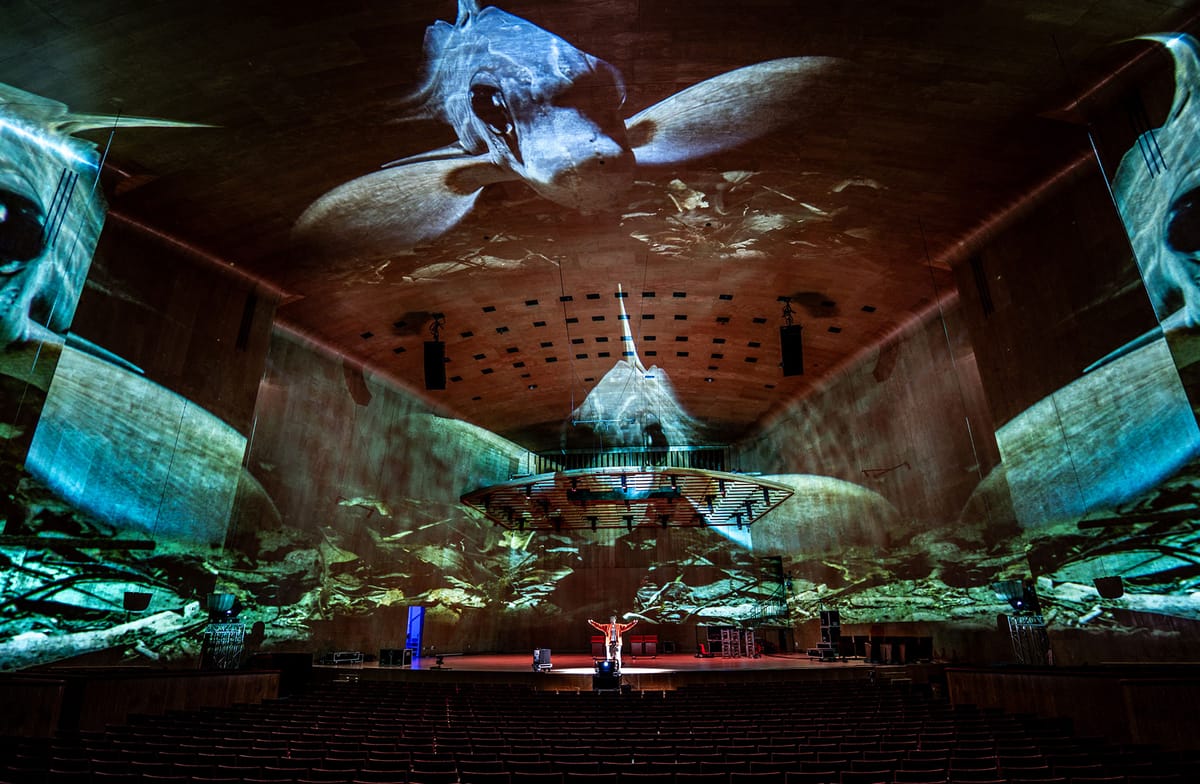No filming, no photography. No clapping between movements. What could we learn from Unreasonable Hospitality?
Some thoughts on giant fish, Will Guidara's Theory of Unreasonable Hospitality, and being in an audience that was shushed by a conductor.

At the weekend we went to see a performance/installation at the Göteborg Konserthus.
Nordic, A Fragile Hope saw the Göteborg Symfoniker performing compositions by Nordic composers whilst footage of the Nordic seas was projected on the walls (and ceiling) of the concert hall.
As we took our seats we were greeted by giant words projected onto the walls.
"Filming and photography is strictly prohibited" (in English and in Swedish).
The atmosphere in the hall before the concert started was buzzing. It was packed with families. There was palpable (audible) excitement when the first (giant) fish swam into view.
And yet, because of this very excitement, twice during the performance, the conductor, visibly annoyed, turned and shushed the audience.
On Monday morning I was reading one of the many newsletters I'm signed up to (Faye's weekly roundup "Thinking Outside the Charity Box") and came across Will Guidara's Theory of Unreasonable Hospitality.
"While running the restaurant Eleven Madison Park, Will Guidara discovered the remarkable power of giving people more than they expect [...] every business can choose to be a hospitality business—we can all transform ordinary transactions into extraordinary experiences [...] We didn’t have to go to extraordinary lengths to blow someone’s mind. All we had to do was pay attention".
I am struck by how rarely it seems as though cultural organisations are looking to capitalise on this idea.
Cultural organisations are already places where something interesting, something potentially extraordinary is happening.
That is why people attend.
Because of that potential.
A quick Google tells me that the word extraordinary has its origin in the latin extra ordinem ‘outside the normal course of events’.
This is the natural competitive advantage that cultural organisations have been blessed with. Their normal is very much 'outside the normal course of events' for almost everyone else who steps through their doors.
And yet so much of the scaffolding of traditional cultural experience (and accompanying expectations) is hostile to newcomers, it's almost as if it is configured precisely to suck the magic out of these potentially extraordinary experiences.
It feels like we have stopped paying attention, stopped understanding what goes into making an experience extraordinary.
It's not just the performance, it's not just the exhibition, it's the entire experience around that. It has been encouraging to see more leadership roles in cultural organisations with clear accountability and oversight for 'experience'.
Because, as Tassos Stevens at Coney said "The experience of an event begins for its audience when they first hear about it and only finishes when they stop thinking and talking about it."
I've referenced Indigo's Tomorrow's Audience research project before, and they've recently started to share some of their initial findings. What this is showing is both the importance of 'special occasions' and also of pragmatic considerations such as the 'ease' of the experience.
I wonder what those giant warning words did to those families' experience of the event, what will they remember about being told off by the conductor simply for enjoying what they were seeing.